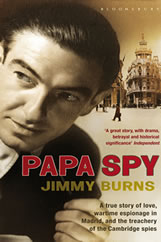The River of Music concert at Battersea Park was one of the occasions that local residents and nature lovers by instinct dread. As I noted in my previous blog, my apprehension about the event , both as local resident and nature lover, grew in the days leading up to it as I witnessed the setting up of metal fencing and occupation by security staff, scaffolders, and heavy vehicles.
But I am not a complete NIMBY and it would have been silly of me to stay away from the event on a point of principle. If I had stayed away, I would not have been able to reach a true judgement of whether all had been worth it. I am a trained journalist, after all, and I owe it to my readers to be as objective as possible.
So here are some thoughts on the two-day festival.
a.The organisers seemed to have gone out of their way to minimise permanent ecological damage and noise pollution. Area of turf that were water-logged had been carefully fenced off to prevent further damage. There were a generous array of litter bins, as well as sufficient staff collecting stray litter to keep things tidy. Stage and sound system were constructed in a way that those in the concert enclosure could hear the music well-but in a miracle of controlled acoustics, the music did not reverberate in nearby streets as has happened in the past with events in the park and in the nearby Power Station site.
b. Security was efficient without being oppressive. Concert goers were frisked with metal detectors and their tickets scanned by private security staff in a pleasant, unobtrusive manner. As for the police, I spotted only a handful of uniformed officers. The Met clearly is focused on other parts of London.
c. The crowd attendance –less than 5,000 at any one point- was nowhere near that of the Jubilee celebrations which might have meant less money for the organisers but proved a blessing for everybody else. It meant the concerts took place without a heaving mass of people trampling over each other and the park in the process. Numbers tripled on the second day-a Sunday-I guess because more people were off work, the weather was great, and the music more popular-but it was still a great atmosphere through the weekend, with people of all ages and cultural backgrounds enjoying a collective chill out. Food stands on offer ranged from paella and iced yoghurt to Thai and ‘jerk’ chicken, all reasonably priced, although still too expensive for some in this lean times. Many people chose to bring their own picnic lunches and early suppers and I saw no one drunk, drugged out, or disorderly. And that was thanks to a well chosen programme of ambitious , although not generally too eclectic cross-cultural music which proved popular with the audience.
d. While on the subject of the music, the billing of it as a “A weekend of FREE music from all of Asia” was misleading. The Kronos Quartet, which overextended themselves playing somewhat too self-indulgent compositions on both days, is a US string quartet based in San Francisco. More of Asia included some inspired Indo-Jazz by the hugely talented clarinettist and composer Arun Gosh (conceived in Calcutta, bred in Bolton, matured in Manchester and now living in London). He was, in my view, one of the star acts of the festival that drew justified approval from the crowd. Directing a collective of musicians ranging from his own sextet to an orchestra of London school children, while playing himself, Gosh’s performance was both charismatic and mesmerising. In my view he was certainly one of the best acts of the festival.
The other was Transglobal Underground- another UK-based collective drawn mainly from musicians with roots in the Persian Gulf but who between them play as many currents of world music that would make a WOMAD. Late on Sunday afternoon, as the dipping sun cast colourful shades and shadows across the park, TGU stirred and shaked and produced the kind of music you can forget your worst days with.
The music was not FREE. Tickets had to be booked online in advance and cost £3- but that turned out to be a great bargain for world music lovers and even park users who had never heard world music like this-while perhaps keeping out free-loading rioters. It helped of course that it not only did not rain, but was beautifully sunny for much of the time. Had it rained, the park’s turf would have been wrecked and much of the festival’s music would have struggled to retain an audience.
So have I changed my mind? Well yes, and no. I am glad this concert took place. It brought people together in a fitting symbol of the universality of the Olympics, listening to music from Saudi Arabia to Japan.But Battersea Park’s prime purpose must be as an oasis of tranquility and nature. It was never conceived as a permanent concert site, nor would its vegetation and wildlife long survive if it became one. Concerts like those promoted as part of the Olympics Festival of Music serve a particular time and occasion, but however much fun, should be occasional rather than regular events. In the spirit of democratic debate, I encourage Wandswoth Council to inform Londoners how much it cost to organise, who paid for what, who made what money, and how much of it, if any, will go towards enhancing the Park’s beauty.

